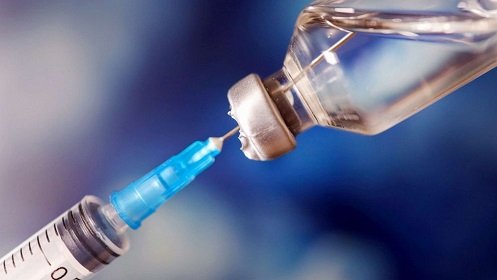
HIV/AIDS Injectable Treatment: Uganda to get first two monthly doses in 2025
The Uganda Aids Commission has revealed that Uganda is expected to receive its first two monthly HIV/AIDs injectable treatment doses in February 2025, following the approval given by National Drug Authority to have the drug used in Uganda, although the six monthly drug is yet to receive approval from the Authority. The details are contained in the Commission’s presentation made to Parliament’s Committee on HIV/AIDs and Other Related Matters, where the Commission was providing an update on the National HIV Response.
“A two monthly injection (LA-cabotegravir) that offers 99% efficacy, is already approved by the National Drug Authority for use in Uganda, we expect the first batch of 3500 doses in February 2025. A six month injection (Lenacapavir) that offers 100% efficacy is not yet approved for use in Uganda,” noted Dr. Vincent Bagambe, Director Planning & Strategic Information at Uganda Aids Commission.
The Uganda Aids Commission also revealed that within 9months, between October 2023 to June 2024, there were 49,111 new diagnosed HIV positive tests recorded in the country, and of those tests, 5,928 were confirmed as recent infections, yet the prevalence of new infections were higher in females at 4,070, compared to 1,858 male recent cases. Dr. Bagambe explained that the antibody based tests are used to distinguish recent (infected less than 12 months ago) from long term HIV infection.
However, the Commission decried the low funding allocated to the fight against HIV, with Bagambe calling for increased investment in prevention interventions if Uganda is to reduce on the new infections that have stagnated, especially among the young people.
“Out of the Shs1.8Trn that we used in provision of HIV services, Shs1Trn is for treatment and all the rest. The commitment that goes prevention intervention is very low, so we aren’t funding prevention interventions. We need to focus and commit resources towards HIV prevention, communication, innovative approaches that need young people. We have started looking for breakthroughs to reach young people through social media but that investment is still not enough,” said Bagambe.
Dr. Bagambe also called on Government to consider taking over funding for the vaginal ring treatment intervention, saying that at the moment, this intervention is donor funded, which could explain the low uptake. According to the Commission, the Vaginal ring (Dapivirine Vaginal Ring) whose efficacy stands at 50% whose implementation has been going on since July 2022 has reached 275 risk women in 6 districts. “The vaginal ring is actually not a condom, it is just like a coil which you can insert into the private parts, when someone is engaged in sect, the feel is different from the feel of the condom but it is inconvenient and still as you can see, uptake is low,” explained Bagambe.
Credit: Parliament Watch







